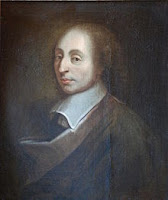 |
| Mosaic of the Transfiguration, Monastery of St. Catherine, Mt. Sinai |
St. Anastasius (d. c. 700), Abbot of the Monastery of St. Catherine on Mt. Sinai, Homily for the Feast of the Transfiguration, as translated rather loosely in the Liturgy of the hours. Original Greek: André Guillou, "Le monastère de la Théotokos au Sinaï: origines; épiclèse; mosaïque de la Transfiguration; Homélie inédite d'Anastase le Sinaïte sur la Transfiguration (étude critique)," Mélanges d'archéologie et d'histoire 67 (1955): 244 (215-256):
ἐν ᾗ ποιεῖ μονὴν σὺν τῷ Πατρί, ἐν ᾗ παραγενόμενος λέγει· σήμερον σωτηρία τῷ οἴκῳ τούτῳ γίνεται, ἐν ᾗ πάντες οἱ θησαυροὶ τῶν αἰωνίων ἀγαθῶν σὺν τῷ Χριστῷ παραγίνονται καὶ ἀποτίθενται, ἐν ᾗ πάντων τῶν μελλόντων αἰώνων αἱ ἀπαρχαὶ καὶ εἰκόνες ὡς ἐν ἐσόπτρῳ διαγράφονται.
. . . in which [heart (each ἐν ᾗ appears to refer back to the ἐν τῇ καρδίᾳ of p. 244, ll. 3-4)] are painted as in a mirror the firstfruits and icons of all the ages to come.
Guillou's well-documented hesitations notwithstanding, G. H. Forsyth of the University of Chicago and K. Weitzmann of Princeton University claimed that when they cleaned the mosaic professionally in the 1960s (?) it became obvious that it had "undergone no major restoration in thirteen hundred years" (Jerzy Miziołek, "Transfiguratio Domini in the apse at Mount Sinai and the symbolism of light," Journal of the Warburg and Courtauld Institutes 53 (1990): 42n2 (42-60)). But I have made no further inquiries.






